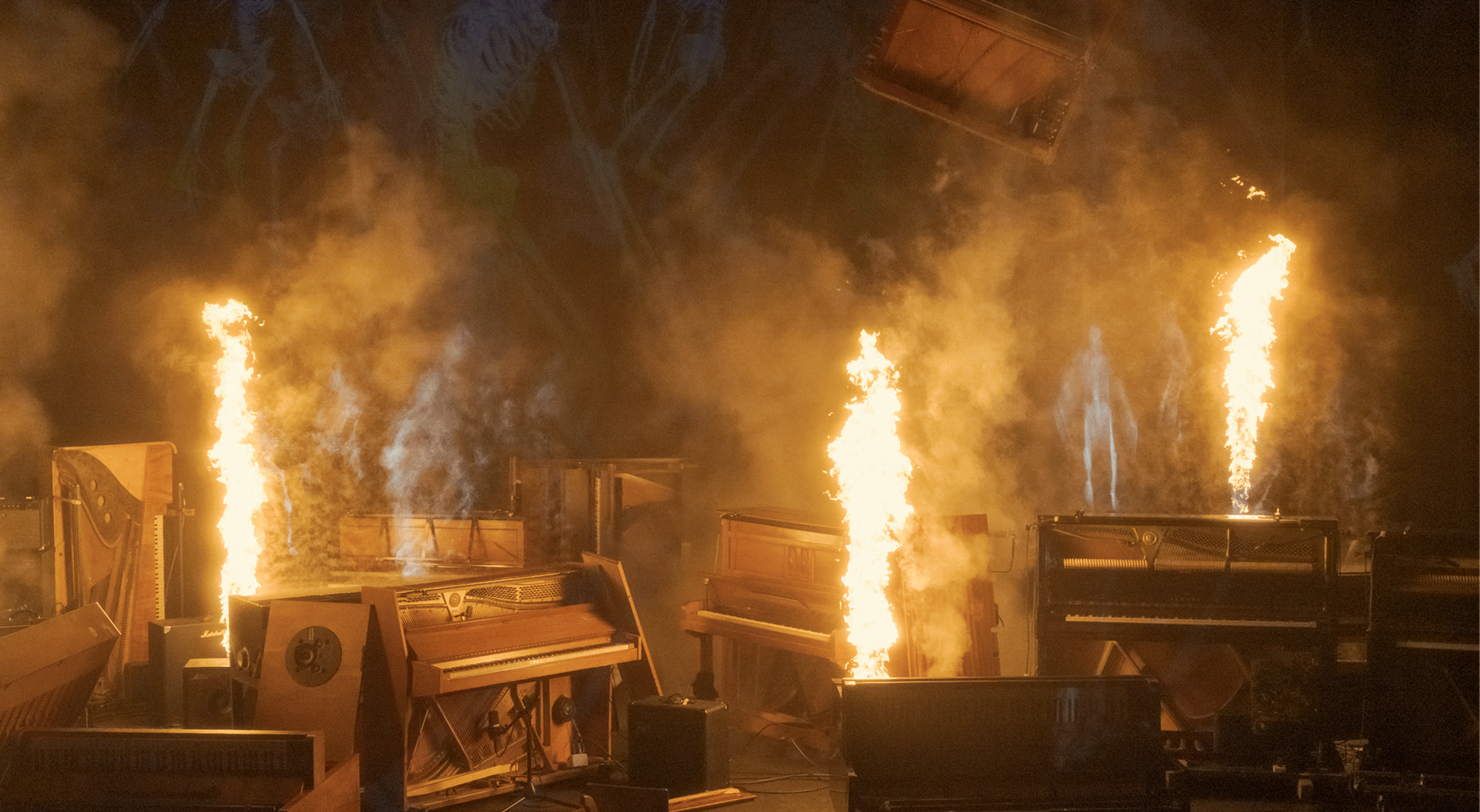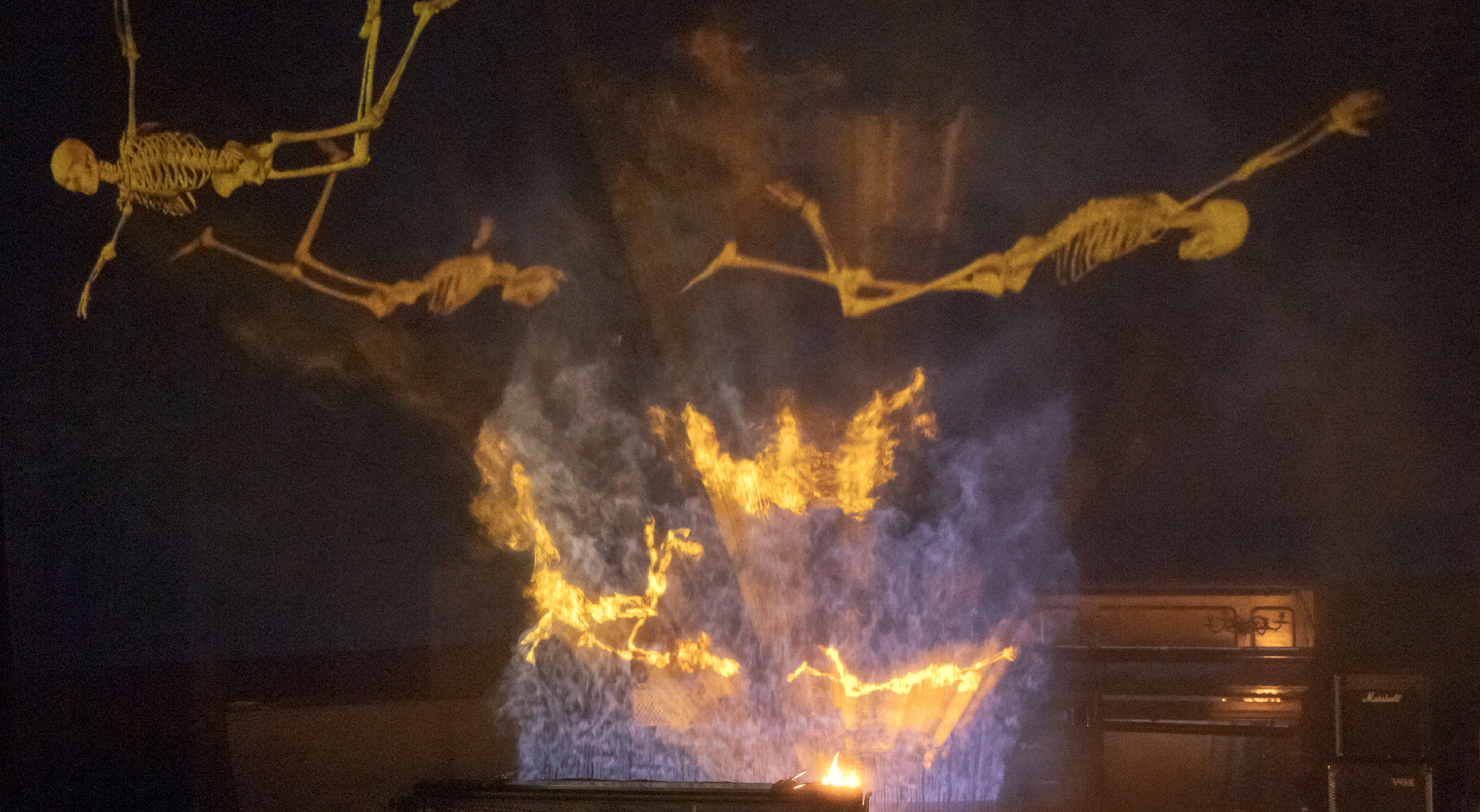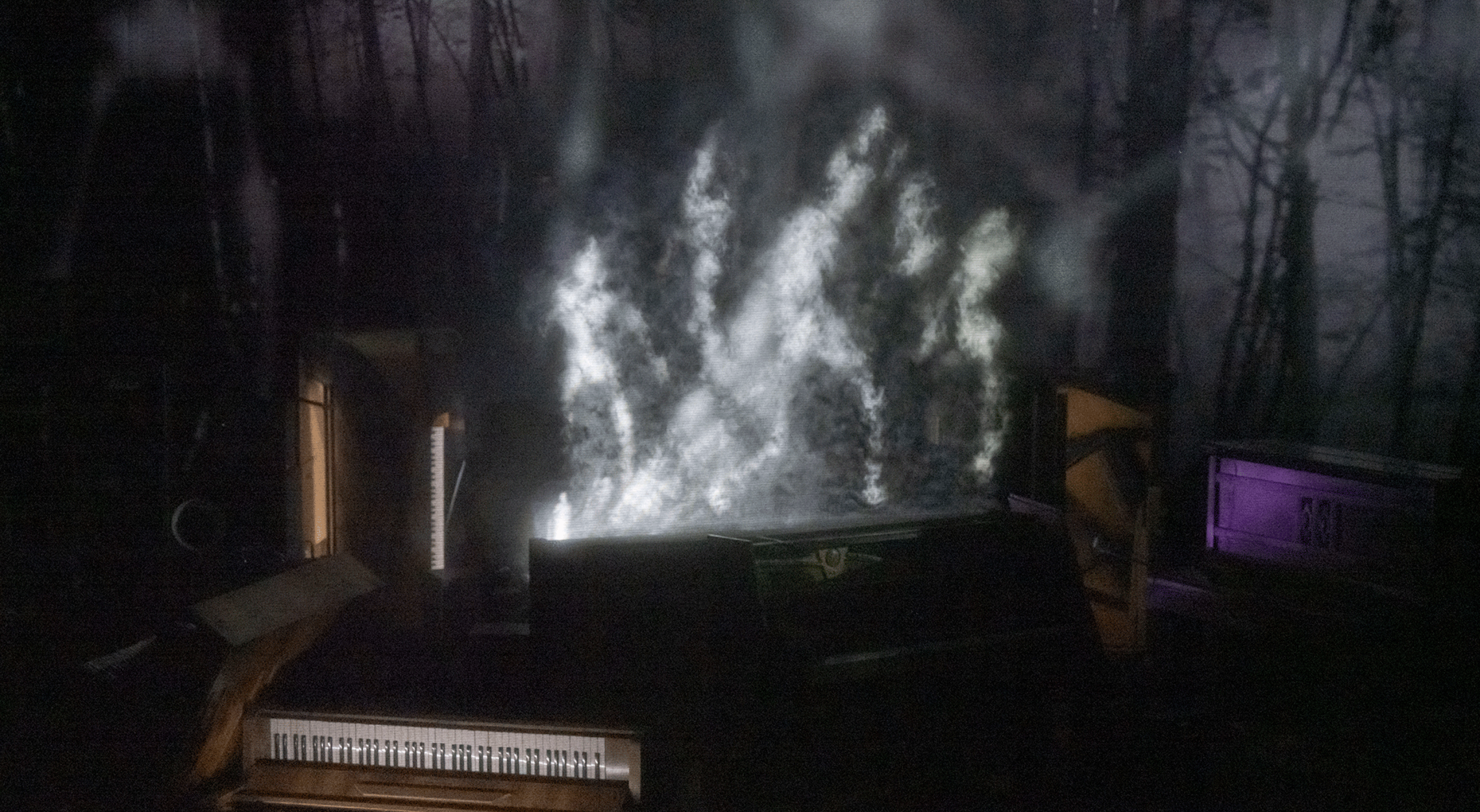Philippe Quesne
Fantasmagoria
novembernov 3 – 6
Design, staging, stage design by Philippe Quesne
Artistic collaboration, Élodie Dauguet
Music composed by Pierre Desprats
Lights, Nico de Rooij
Stage work collaboration, Éric Vautrin
Assistant, Fleur Bernet
Voice, Isabelle Prim, Èlg, Pierre Desprats
3D Animation, Bertran Suris, Philippe Granier
General manager, Marc Chevillon
Set design, Atelier du Théâtre Vidy-Lausanne
Production, Elizabeth Gay
General stage management, Quentin Brichet
Accessories, Mathieu Dorsaz
Video, Mattias Schnyder
Sound, Ludovic Guglielmazzi, Charlotte Constant
Set, Fabio Gaggetta
Light, Jean-Baptiste Boutte, Farid Deghou
Sources of lyrics, Étienne-Gaspard Robertson, Mémoires récréatifs, scientifiques et anecdotiques du physicien-aéronaute E. G. Robertson, 1831 ; Allan Kardec, Le livre des
esprits, 1857; Laura Vasquez, Vous êtes de moins en moins réels, Points, 2022
Sources video, 3D Animation «Le vol du squelette» (Ph. Quesne, La démangeaison des ailes, 2003) ; Garden party, film de Ph. Quesne et C. Vayssié, 2012 (extrait)
Produced by Théâtre Vidy-Lausanne; Vivarium Studio
With support from the Fondation d’entreprise Hermès as part of its New Settings program
Co-produced by (ongoing) Bonlieu Scène nationale (Annecy); Les Spectacles vivants – Centre Pompidou (Paris); La rose des vents, Scène nationale Lille Métropole
Villeneuve d’Ascq; Festival d’Automne à Paris
With support from PEPS – Interreg France-Suisse
Co-directed by Les Spectacles vivants – Centre Pompidou (Paris); Festival d’Automne à Paris
Philippe Quesne orchestrates an actor-less cabaret for lone pianos, set to music by Pierre Desprats. He brings us a theatrical attraction composed of fleeting appearances and magic lanterns, a workshop-world which is host to projections of all sorts.
The shadow of Roberton, the instigator of gloomy evenings made possible by ingenious optical devices, hangs over Fantasmagoria. It was he who promised, in the aftermath of the Terror, to bring the dead back to life and invoke ventriloquist-inhabited spirits. These encounters were in response to anxiety at the time, and were a forerunner to the overwhelming success of the spirit mediums, romanticised versions of hell, smooth-talkers and suggestive illusions of early cinema. By means of a dialogue with these two universes, Philippe Quesne presents us with a beguiling theatrical form peopled with phantoms, ghostly ancestors and clairvoyant poets. The music by Pierre Desprats brings to life a whole graveyard of mismatched mechanical pianos, celibate machines haunted by phosphorescent music set to the rhythm of macabre dances and incantatory wafts of smoke. The French director, who is used to breathing life into minority, possible other worlds, unveils a melancholic, theatrical, memory-based meta-world, a fairground-like ritual for exorcising fatality.
See also



